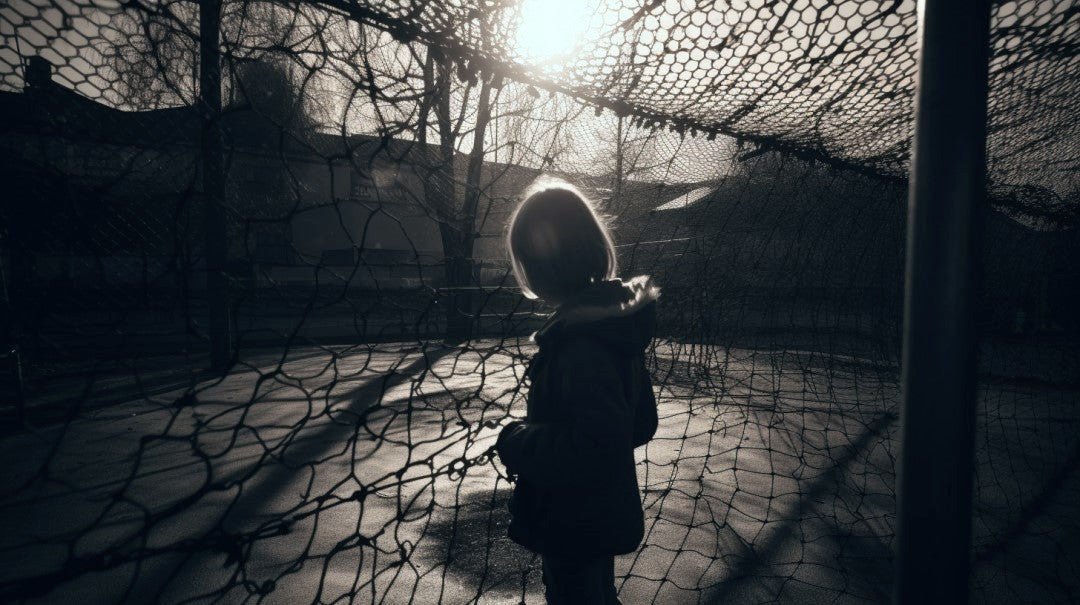
Wounded Attention: The Invisible Thread Between Trauma and ADHD
Share
Early childhood or chronic stress, such as traumatic experiences, also plays a role in the development of ADHD. Trauma can permanently alter the brain. This blog explores the connections and suggests possible courses of action.
In a world where ADHD diagnoses are becoming increasingly common, a critical element of child psychology often remains overlooked : complex trauma. Children who have experienced intense, repeated traumatic events can develop behaviors symptomatic of ADHD. Hyperactivity, impulsivity, inattention, and emotional reactivity are not just signs of a neurobiological disorder. They can also be cries for help from young souls plagued by invisible wounds.

What is meant by “trauma”?
Trauma literally means "wound, injury, or shock." A traumatic event is one that the psyche experiences as completely overwhelming. This includes not only severe physical injuries—as was previously assumed—but also severe psychological injuries. These "psychic wounds" are often triggered by experiences that involve a loss of control or even life-threatening situations.
People vary greatly in what they consider traumatic. However, there are some events that cause so much stress that few people emerge psychologically unscathed. Especially if they lack caring support after the event.
Typical events that can trigger trauma
Possible events that can be traumatic include:
- Natural disasters such as earthquakes and floods
- War and conflict
- Becoming a victim of a crime (e.g. being raped, assaulted, robbed or kidnapped)
- Be involved in or witness a serious accident
- Being exposed to death, injury or violence through work or volunteer activities
- Unexpected/violent death of a loved one
- Very complicated or violent birth
- Painful or degrading medical procedures
- Interpersonal violence or abuse
- Severe neglect of care in childhood
- Lack of or toxic connection to parents/guardians
- Long-term, unwanted separation from caregivers such as mother/father

What is meant by “complex trauma”?
" Complex trauma " describes a specific type of trauma that goes beyond a single event. It can be repeated or persistent, difficult or impossible to escape, occur within a personal relationship, begin in childhood, and affect a child's development. It can also be covered up, kept secret, or denied by other family members (such as abuse). Common causes of complex trauma include child abuse and domestic violence. However, complex trauma also occurs in people who have survived detention, torture, or human trafficking. Being a refugee or long-term exposure to conflict can also cause complex trauma.

Complex vs. simple trauma: The long storm, not just the short flash
Events that occur only once have a clear beginning and end . Once the traumatic event is over, survivors can reach a safe place, potentially seek help, and recover. Complex trauma, on the other hand, is persistent or recurs frequently, leaving little time for recovery. Complex trauma also often occurs in secret—the affected person is then unable or afraid to seek advice, care, and support.
In most cases, trauma begins in childhood or adolescence . Because the brain is still growing, ongoing trauma can cause changes in brain structure and function that impair future development. Trauma survivors find it much more difficult to cope with daily life and relationships. For example, they have chronic difficulties tolerating, naming, and integrating strong emotions; they struggle with a short attention span and/or a less reliable memory. Even maintaining stable and secure relationships is more like a noisy construction site or minefield for them than a large green field. Traumatized people rarely act from a sense of inner security and self-love . Instead, they are plagued by insecurity and nervousness - and they have internalized destructive beliefs such as "I am unlovable" or "no matter what I do, it is never enough."

How are ADHD and trauma related?
Stress in early childhood or chronic stress, including traumatic experiences, is a factor in the development of ADHD. Children who experience trauma in early childhood—whether through maltreatment, sexual abuse, separation from caregivers, aggressive parental behavior, or experiences in war—are more likely to develop symptoms of ADHD (i.e., inattention, impulsivity, hyperactivity/restlessness). On the other hand, studies show that individuals with ADHD experience significantly more traumatic events, particularly in relationships. 20 to 50 percent of all children who experience early childhood trauma also develop clinical ADHD symptoms .
Although there is no clear evidence yet that trauma causally increases the risk of ADHD through changes in the dopaminergic system, there is compelling evidence that both early childhood and adolescent trauma can cause lasting changes in the brain's dopaminergic system. Dopamine is the neurotransmitter whose levels are artificially increased in ADHD using medications (Ritalin, amphetamines).

What can you do if you suspect your child has experienced trauma?
Trust your instincts. If you feel that your child's ADHD diagnosis isn't quite right , make sure you raise your concerns with a psychologist or psychiatrist. Talk about the events (see above) that may have triggered complex trauma. But whether it's ADHD or trauma, don't settle for medication alone after a diagnosis. Even if your child experiences minimal or no side effects from their medication, one thing is almost certain: the medication's effectiveness will gradually diminish over time. By then, your child—or teenager—should have learned to deal with difficult situations without having to continually increase the dosage (at most, to the medical limit, where side effects become clearly noticeable).

What do children with ADHD and a background of complex trauma need?
People with ADHD and traumatized individuals have experienced places with their psyche/spiritual experience that many others never experience. Some even emerge stronger, while others are hindered in their development and/or face their everyday lives with a constant feeling of heaviness, anxiety, insecurity, or sadness.
The following things help with ADHD and complex trauma:
- Consistency, predictability and routine in life - both at home and at school
- Help in building lasting, secure and predictable relationships
- Important, empathetic caregivers where you feel comfortable, understood and valued
- A sense of control by offering rather limited choices
- Strategies to promote resilience (meditation/mindfulness, consistent regeneration, regular exercise/sports, group meetings, balanced diet, psychotherapy/behavioral therapy/trauma coaching)
Remember, with your child – or with yourself: Trauma cannot always be overcome alone. If complex trauma negatively impacts daily life and personal well-being over an extended period of time, it is advisable and necessary to seek support. Within trauma therapy there are various approaches and techniques that can help to integrate trauma into one's own psyche – and to plant the field of life on new soil. The storm may have been long. The fire consuming. But our life would not be our life if it could not reinvent itself again and again. Created on a small sphere in the emptiness of ice-cold space (minus 273 degrees Celsius). Surrounded by fire-spewing volcanoes. A pulsating center that warms itself. 35.7 to 37.3 degrees Celsius. The temperature of our vulnerable, yet wonderful and adaptable body.

